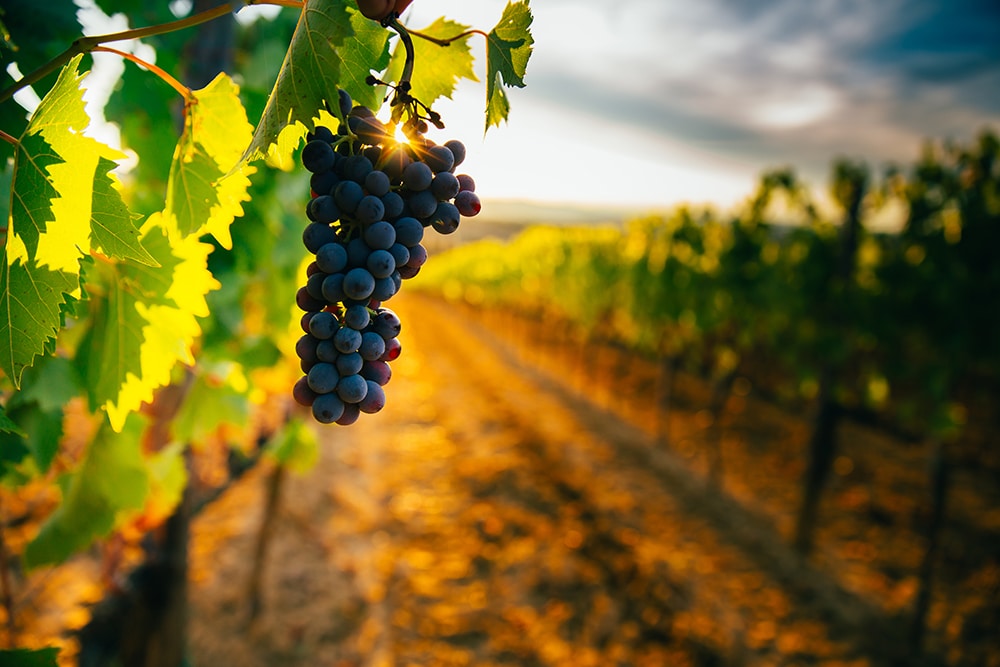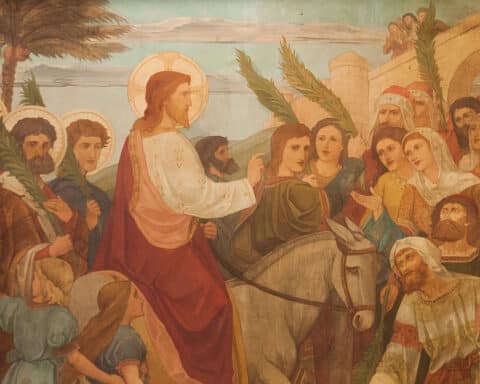
This natural dimension of vineyards is taken up by the prophet Isaiah. There is a vineyard that has been nurtured by the most careful of cultivators. Still, only wild grapes — unable to be consumed — grew in that vineyard.
How is this? The Lord, comparing Israel to a vineyard, asks this very question. How can my vineyard, my people, whom I have cultivated with such care and attention and made so beautiful produce bad fruit? Israel is told that the vineyard will be taken away, destroyed and suffocated. The time of judgment, for this vineyard, is at hand.
| October 4 – 27th Sunday in Ordinary Time |
|---|
|
Is 5:1-7
Ps 80:9, 12, 13-14, 15-16, 19-20
Phil 4:6-9
Mt 21:33-43
|
Isaiah is addressing the crisis of the northern kingdom that would lead its eventual conquering by the Assyrians in 722 B.C. The vineyard would be destroyed. The People of God would be scattered. The southern kingdom of Judah would also be conquered and exiled in 597 B.C. The beloved fruit of God would be crushed under the Babylonians.
Jesus takes up this image of the vineyard in announcing his death. There is a tenant who leases a vineyard to a people. At harvest time, the landowner sends servants to receive the vintage grapes. But the servants are beaten, stoned and turned away.
At last, the vineyard owner sends his beloved son. He too is turned away, kicked out of the vineyard and then killed.
The peaceful vineyard becomes a place where blood is spilled.
We know that Jesus is speaking here about his very life. In the fullness of time, the Father sent the Son to announce the kingdom of God to his beloved people. And yet, everyone rejects the Son. This rejection will lead to his death upon the cross. The message that Jesus delivers is too divine, too holy, and too good to be received by the hardened hearts of men and women.
And yet, the wondrous mystery that Jesus reveals in this parable is that the rejection of the Son is the opening up of the vineyard to all. The fruit of the vineyard will be given not to one nation but to all the nations. Men and women from every corner of the earth will be laborers in this vineyard.
Dear friends, the Church is the fruit of Christ’s merciful blood in the vineyard of this world. We are now Christ’s laborers, meant to bear fruit through the witness of a life ordered to the self-giving love of the Word made flesh.
And yet, this vineyard may be corrupted just like any vineyard. Our beauty is from the one who cultivated us, not the result of our extraordinary efforts. When we mistakenly imagine ourselves to be the cultivators — to be God — we continue the cycle of violence that resulted in the death of Our Lord in the first place.
Even now, dear friends, there are saintly prophets who dwell among us. They are priests, bishops and baptized Catholics who come to give us a message from the divine cultivator. Life is not about power or prestige, fame or fortune but love unto the end.
Are we willing to listen?
Or will we, just like our forebears, find a way to violently expunge these prophets from our midst?
The choice is ours. Convert, become a worker of self-emptying love in the vineyard of the Lord.
Timothy P. O’Malley, Ph.D., is the director of education at the McGrath Institute for Church Life at the University of Notre Dame.





